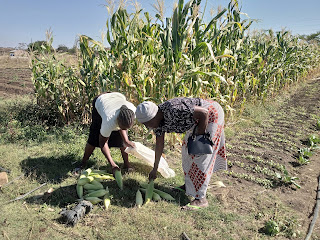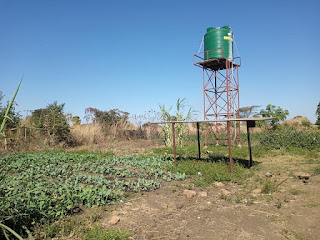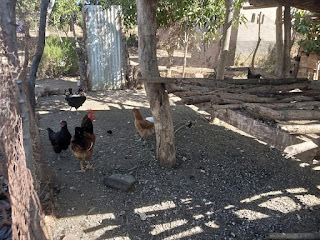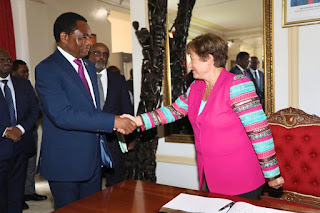 |
| President Hichilema welcoming President El-Sisi in Lusaka last week during COMESA Summit. -Picture by State House Zambia |
Seven African Presidents are on their way to Europe to start
mediating in the Russia-Ukraine War which has had global implications.
President Hakainde Hichilema of Zambia, President Cyril
Ramaphosa of South Africa, President Macky Sall of Senegal, President Abdel
Fattah El-Sisis of Egypt, President Yoweri Museveni of Uganda, President Denis
Sassou Nguesso of Congo Brazaville and President Azali Assoumani of the Comoros
are on their way to Ukraine and Russia as part of the African Peace Initiative
which aims at halting hostilities.
The African initiative is among many efforts being made to
stop the war which has displaced millions of Ukrainians and left thousands dead.
Since Russia invaded Ukraine in February 2022, countless
efforts by the Chinese, Americans and European countries have been made to end
hostilities but all have failed.
And now African leaders want to try their luck.
Zambia’s Foreign Affairs Minister Stanley Kakubo says the
African presidents will start their visit in Ukraine before proceeding to Russia.
Mr. Kakubo says President Hichilema and his African
counterparts will hold talks with Ukrainian President Volodymyr Zelensky in
Kyiv on Friday and later meet Russian President Vladimir Putin in his home town
of Saint Petersburg the following day.
“The African Peace Initiative draws upon Africa’s successful
track record of resolving conflicts through dialogue and peace-building, with
the African leaders aiming to encourage open dialogue and negotiations between
Russia and Ukraine,” said Mr. Kakubo.
In a statement issued on Wednesday, Mr. Kakubo said Zambia
remains deeply committed to global peace as a catalyst for socio-economic
development in Africa and the world at large.
He said the Russia-Ukraine war has disrupted Africa's
commodity supply chain and extended the humanitarian crisis.
President Hichilema left Zambia on Wednesday night for
Europe.
Of the seven African Presidents travelling to Europe for the
peace mission, the South African leader Ramaphosa is the closest to Moscow and
according to media reports in the west, he is the delegation leader.
President Ramaphosa may use his links to Russia to push for a
resolution to the conflict in Ukraine.
South Africa has refused to condemn Russia for the February
2022 invasion of its neighbor and is currently embroiled in a diplomatic row
over the presence of President Putin at the forthcoming BRICS summit it is
scheduled to host in August.
A few weeks ago, Pretoria issued immunity to all heads of
state who are expected to attend the summit which would pave way for the
Russian strongman to attend even when the International Criminal Court has
issued arrest warrants for him over the Ukrainian war.
BRICS is a group of emerging economies which has become a
force in global economics and is slowly being tipped to be a shadow of the G8
group of countries.
It stands for Brazil, Russia, India, China and South Africa.
A local think tank in Zambia is hopeful that the effort by
African Presidents will yield positive results.
The Southern African Center for the Constructive Resolution
of Disputes (SACCORD) says African leaders have the capacity to do many good
things not only on the continent but also at the world stage.
“The fact that the 7 countries have been accepted by both
Ukraine and Russia as legitimate peace brokers must give confidence to all of
us that there is a possibility for success. We commend the leaders of the 7
countries for being bold and wish them all the very best in undertaking this
important peace building effort for the entire world,” said SACCORD Executive
Director Boniface Cheembe in a statement.
And a good governance researcher at the University of Zambia
Nalukui Milapo says the effort by African leaders is worth trying.
Dr. Milapo, who is part of the Institute of Economic and Social
Research at the University of Zambia, says African countries enjoy warm
relations with Moscow and they may just prevail over Putin.
“While relations between Moscow and a few African countries
have weakened in the recent past, it is still worth noting that historically,
Africa has enjoyed warm relations with Russia, which has provided education and
covert military support. These ties go back to the Soviet era. On the other
hand, the visit to Kiev is meant to underline the fact that Africans also still
look to the West and their democratic ideals, which Zambia especially espouses.
For me, Zambia has been enlisted because of its democratic credentials. I doubt
if anything will come out of this engagement, but it is worth trying just like
others have done,” said Dr. Milapo.
She adds that the African delegation headed for Moscow and
Kiev has had varied positions on the war, recalling that during voting for the
United Nations resolution condemning the Ukraine war, Zambia and Egypt voted in
favour of the motion while South Africa and others abstained.
It is yet to be seen how far these African leaders will go in pushing for peace in Europe when little or not progress has been made in bringing peace to war torn Central African Republic, Sudan and Somalia which are in their backyard.







